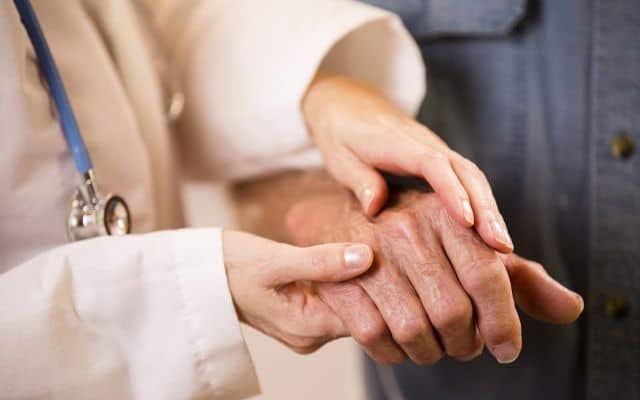With over 1 million orders

Why Does Arthritis Pain Affect People Differently?
While two people could have the exact same amount of joint damage, one could be dealing with nothing but manageable discomfort, while the other suffers in what feels like bone-twisting agony. Why? Because arthritis can affect people differently.
Pain is subjective and multiple factors define your physical, emotional, mental response to pain. Given that, it’s almost impossible to make an apples-to-apples comparison of one sufferer’s experience with another.
To better understand this, we’ve broken down the different factors that influence your perception of pain—
1. Your medical condition
Statistically, most adults live with multiple chronic health conditions; one of the most common ones being arthritis, especially as you approach old age. In a lot of cases, this exposes you to a lot of painful symptoms, making you more sensitive to discomfort. And this ultimately heightens arthritis pain symptoms once your joints start acting up.
2. Your genes
Studies are now looking into how genes make you more predisposed to pain sensitivity—kind of like how your genetic make up makes you more vulnerable to certain diseases. While still in its early stages, it could explain why different people experience varying degrees of pain even if they suffer from the same joint damage.
3. Your age
It’s an unfortunate but inevitable fact—pain sensitivity could get worse as you get older. Researchers hypothesize that this is caused by the way our brain structure changes as we age. And while this may cause others to become less sensitive to pain, in others, it is enhanced.
4. Your gender
Women are more susceptible to chronic pain conditions. For example, conditions like arthritis and fibromyalgia are more common among women. Additional research also notes that women are more sensitive to pain symptoms, possibly because of female hormones, which can influence perception of pain.
5. Your emotions
Pain is as much about the physical symptoms as it is about your emotional and mental ones. In fact, pain and depression are so closely linked that people suffering from chronic pain are more likely to develop depression or other mood disorders.
6. Your support system
You don’t have to suffer through chronic pain alone. Surrounding yourself with family and friends who can help you cope with the lifestyle changes and limitations of your condition can affect your pain in a positive way. But pain can also prompt you to withdraw from your usual routine and social circles—leading you to a downward spiral of isolation and depression, which exacerbates pain sensitivity.
How to deal
Regardless of how you perceive pain, acknowledge this fact: it will be disruptive to your life. Admitting this, understanding it, and arming yourself with the information and resources necessary to address it is critical to managing your condition.
Know that you have numerous options. Start by talking to your doctor about ways to manage your symptoms better. Maybe a change in diet could be beneficial; using aids like compression garments, walkers or support could be helpful; or simply opening up about your condition and how you feel to the people closest to you could make huge a difference.
If you have any questions, go ahead and leave a comment below and we’ll try our best to answer your concerns.
